Ditapis dengan

Atomic Habits : Perubahan kecil yang Memberikan Hasil Luar Biasa : Cara Mudah…
Orang mengira ketika Anda ingin mengubah hidup, Anda perlu memikirkan hal-hal besar. Namun pakar kebiasaan terkenal kelas dunia James Clear telah menemukan sebuah cara lain. Ia tahu bahwa perubahan nyata berasal dari efek gabungan ratusan keputusan kecil—dari mengerjakan dua push-up sehari, bangun lima menit lebih awal, sampai menahan sebentar hasrat untuk menelepon. Ia menyebut semua t…
- Edisi
- Cetakan ke-35
- ISBN/ISSN
- 978-602-06-3317-6
- Deskripsi Fisik
- ix + 340 hlm.; 23 cm.
- Judul Seri
- -
- No. Panggil
- 155.25 CLE a

A Preface to Metaphysics : Seven Lectures on Being
- Edisi
- First Published
- ISBN/ISSN
- -
- Deskripsi Fisik
- 142 pgs.; 18 cm.
- Judul Seri
- -
- No. Panggil
- 111 MAR p
- Edisi
- First Published
- ISBN/ISSN
- -
- Deskripsi Fisik
- 142 pgs.; 18 cm.
- Judul Seri
- -
- No. Panggil
- 111 MAR p

Being and Having : An Existentialist Diary
- Edisi
- First Published
- ISBN/ISSN
- -
- Deskripsi Fisik
- 236 pgs.; 21 cm.
- Judul Seri
- -
- No. Panggil
- 110 GAB b
- Edisi
- First Published
- ISBN/ISSN
- -
- Deskripsi Fisik
- 236 pgs.; 21 cm.
- Judul Seri
- -
- No. Panggil
- 110 GAB b
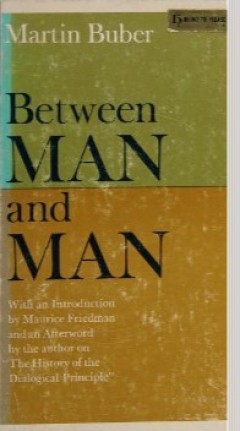
Between Man and Man
Scholar, theologian and philosopher, Martin Buber is one of the twentieth century's most influential thinkers. He believed that the deepest reality of human life lies in the relationship between one being and another. Between Man and Man is the classic work where he puts this belief into practice, applying it to the concrete problems of contemporary society. Here he tackles subjects as varied a…
- Edisi
- First Published
- ISBN/ISSN
- -
- Deskripsi Fisik
- 256 pgs.; 18 cm.
- Judul Seri
- -
- No. Panggil
- 128 BUB b
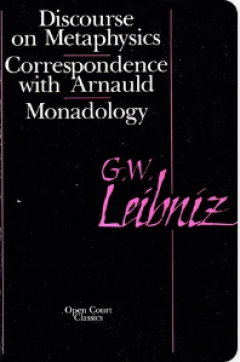
Discourse on Metaphysics, Correspondence with Arnauld, and Monadology
"I flatter myself that I have learned something by following in the tracks of Plato and others, and have reached, in one way at least, 'the serene temples erected by the teachings of the wise.' These temples are built on a foundation of general truths which do not depend on facts and yet, as I see it, form the key to the knowledge which passes judgement on facts…I have always striven to uncov…
- Edisi
- First Published
- ISBN/ISSN
- 0-87548-030-6
- Deskripsi Fisik
- xxx + 272 pgs.; 20 cm.
- Judul Seri
- -
- No. Panggil
- 193.1 LEI d
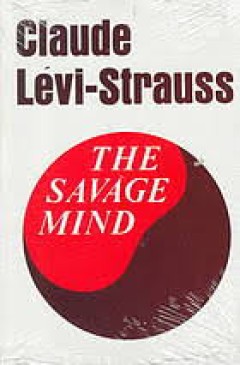
The Savage Mind
- Edisi
- First Published
- ISBN/ISSN
- 0-226-47483-6
- Deskripsi Fisik
- xii + 290 pgs.; 20,5 cm.
- Judul Seri
- -
- No. Panggil
- 194 LEV s
- Edisi
- First Published
- ISBN/ISSN
- 0-226-47483-6
- Deskripsi Fisik
- xii + 290 pgs.; 20,5 cm.
- Judul Seri
- -
- No. Panggil
- 194 LEV s

Aristotle: Nicomachean Ethics
- Edisi
- First Published
- ISBN/ISSN
- 1-85356-461-X
- Deskripsi Fisik
- xxiv + 287 pgs.; 19,5 cm.
- Judul Seri
- -
- No. Panggil
- 185.1 RAC a.a
- Edisi
- First Published
- ISBN/ISSN
- 1-85356-461-X
- Deskripsi Fisik
- xxiv + 287 pgs.; 19,5 cm.
- Judul Seri
- -
- No. Panggil
- 185.1 RAC a.a

Aristotle: Nicomachean Ethics
- Edisi
- First Published
- ISBN/ISSN
- 0674990811
- Deskripsi Fisik
- xxxiv + 650 pg.; 17 cm.
- Judul Seri
- -
- No. Panggil
- 185.1 CRI a
- Edisi
- First Published
- ISBN/ISSN
- 0674990811
- Deskripsi Fisik
- xxxiv + 650 pg.; 17 cm.
- Judul Seri
- -
- No. Panggil
- 185.1 CRI a
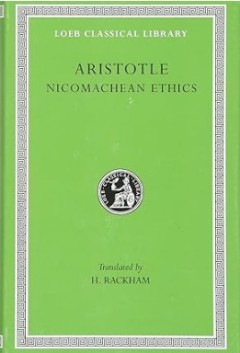
Aristotle: Nicomachean Ethics
Aristotle, great Greek philosopher, researcher, reasoner, and writer, born at Stagirus in 384 BC, was the son of a physician. He studied under Plato at Athens and taught there (367–347); subsequently he spent three years at the court of a former pupil in Asia Minor. After some time at Mitylene, in 343–342 he was appointed by King Philip of Macedon to be tutor of his teen-aged son Alexander.…
- Edisi
- Revised Edition
- ISBN/ISSN
- 0-674-99081-1
- Deskripsi Fisik
- xxxiv + 650 pgs.; 17 cm.
- Judul Seri
- -
- No. Panggil
- 185.1 RAC a
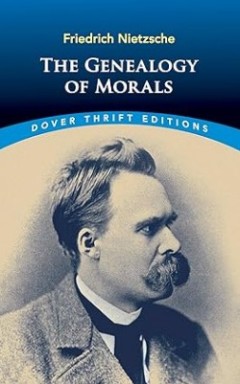
The Genealogy of Morals
Written in response to a book on the origins of morality by his erstwhile friend Paul Rée, the three essays comprising The Genealogy of Morals — all three advancing the critique of Christian morality set forth in Beyond Good and Evil — are among Nietzsche's most sustained and cohesive work. In the first essay — starting from a linguistic analysis of words such as "good," "bad," and "evi…
- Edisi
- First Published
- ISBN/ISSN
- 978-0-486-42691-2
- Deskripsi Fisik
- ix + 118 pgs.; 20,5 cm.
- Judul Seri
- -
- No. Panggil
- 170 NIE g
 Karya Umum
Karya Umum  Filsafat
Filsafat  Agama
Agama  Ilmu-ilmu Sosial
Ilmu-ilmu Sosial  Bahasa
Bahasa  Ilmu-ilmu Murni
Ilmu-ilmu Murni  Ilmu-ilmu Terapan
Ilmu-ilmu Terapan  Kesenian, Hiburan, dan Olahraga
Kesenian, Hiburan, dan Olahraga  Kesusastraan
Kesusastraan  Geografi dan Sejarah
Geografi dan Sejarah